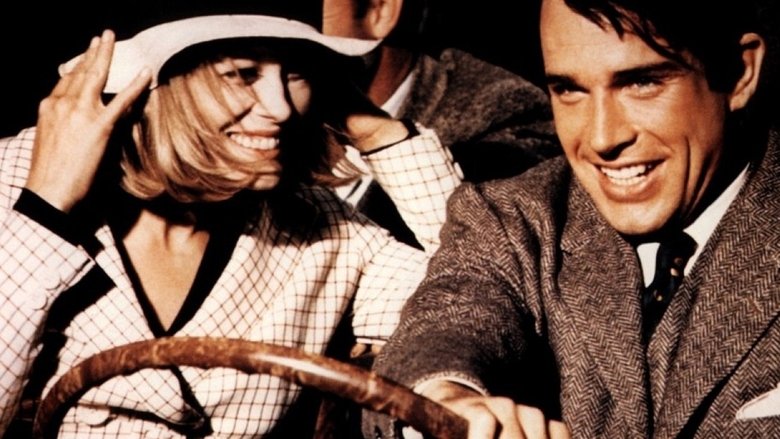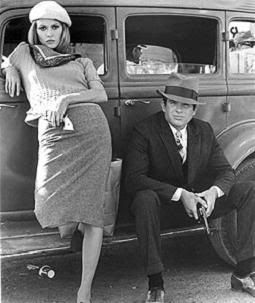← Back to Reviews

in
Bonnie and Clyde (Arthur Penn, 1967)

Arthur Penn's second consecutive homage to the French New Wave hits paydirt in a spectacular character study/black comedy/social satire utilizing Bonnie Parker and Clyde Barrow as a commentary on not only what they represented in the 1930s, but more importantly, what film and hero worship represented in the 1960s. Penn reunites with Beatty, the protagonist of his artsy-fartsy existential gangster flick, Mickey One, and turns that film's abstractions and pretentiousness into commercial gold. Relative newcomer Faye Dunaway proves to be a perfect foil for Beatty, and the rest, as they say, is history.
Bonnie and Clyde is one of those essential films which arrived at the right place and at the right time. It signaled, along with Mike Nichols' Who's Afraid of Virginia Woolf? and The Graduate, a new frankness in American films which could never be "fully" contained by a Code and could never turn back to the Old Days. Bonnie and Clyde was certainly the most violent mainstream film made before The Wild Bunch, and while the latter was rated R, the former was originally released with no rating whatsoever.

Not only did the film turn Faye Dunaway into an immediate star, it reignited Warren Beatty's career which was actually on a downslide. Add in the fact that Estelle Parsons won an Oscar for her second role, Gene Hackman and Michael J. Pollard were rightfully nominated for two of their earliest roles, and Gene Wilder was a laugh riot in his first feature, and it's easy to see how significant Bonnie and Clyde was at its time of release and how important the effects of its success continue on to this day.
If nothing else matters, just listen to and watch "Foggy Mountain Breakdown".

Arthur Penn's second consecutive homage to the French New Wave hits paydirt in a spectacular character study/black comedy/social satire utilizing Bonnie Parker and Clyde Barrow as a commentary on not only what they represented in the 1930s, but more importantly, what film and hero worship represented in the 1960s. Penn reunites with Beatty, the protagonist of his artsy-fartsy existential gangster flick, Mickey One, and turns that film's abstractions and pretentiousness into commercial gold. Relative newcomer Faye Dunaway proves to be a perfect foil for Beatty, and the rest, as they say, is history.
Bonnie and Clyde is one of those essential films which arrived at the right place and at the right time. It signaled, along with Mike Nichols' Who's Afraid of Virginia Woolf? and The Graduate, a new frankness in American films which could never be "fully" contained by a Code and could never turn back to the Old Days. Bonnie and Clyde was certainly the most violent mainstream film made before The Wild Bunch, and while the latter was rated R, the former was originally released with no rating whatsoever.

Not only did the film turn Faye Dunaway into an immediate star, it reignited Warren Beatty's career which was actually on a downslide. Add in the fact that Estelle Parsons won an Oscar for her second role, Gene Hackman and Michael J. Pollard were rightfully nominated for two of their earliest roles, and Gene Wilder was a laugh riot in his first feature, and it's easy to see how significant Bonnie and Clyde was at its time of release and how important the effects of its success continue on to this day.
If nothing else matters, just listen to and watch "Foggy Mountain Breakdown".
